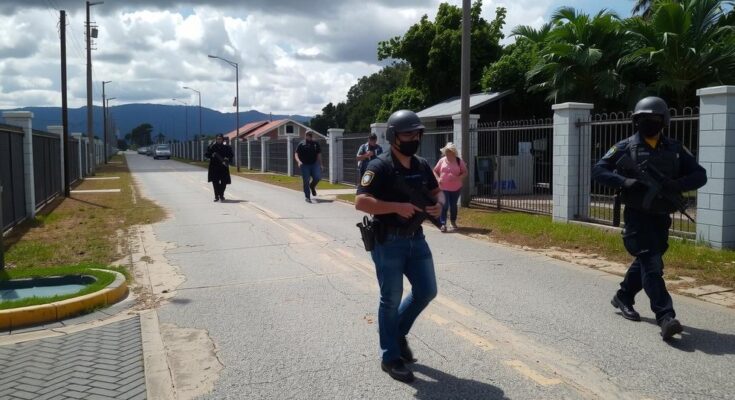Colombia will send Ambassador Milton Rengifo to Nicolás Maduro’s inauguration on January 10, amid President Gustavo Petro’s critique of the legitimacy of those elections. Duque’s administration and Petro’s policies reflect opposing approaches to Venezuelan relations. In anticipation of potential unrest, Colombia is intensifying border security as protests against Maduro are expected across the globe.
Colombia has named Milton Rengifo, the current Ambassador to Venezuela, as its representative at Nicolás Maduro’s inauguration on January 10. Notably, no Latin American heads of state are anticipated to attend this ceremony. President Gustavo Petro has declined to participate, emphasizing that the elections leading to Maduro’s third term were neither free nor fair due to the prevailing political conditions. Petro also cited the recent arrest of Carlos Correa, a director of a press freedom NGO, as a reason for his absence.
Despite criticism regarding Rengifo’s attendance from various political sectors, President Petro defended his diplomatic approach by contrasting it with the more isolationist policies of former President Iván Duque. Petro stated that avoiding diplomatic engagement only intensifies the humanitarian crises faced by Colombian and Venezuelan citizens, encouraging the proliferation of organized crime.
In response to Maduro’s inauguration, Colombia is heightening security across its borders, particularly in the Arauca, Norte de Santander, and La Guajira departments, areas with a significant presence of guerrilla groups. Approximately 3,700 troops have been deployed to safeguard routes frequently exploited by criminal organizations. Local officials have called for vigilance to prevent any possible unrest that could spill over from Venezuela during the inauguration proceedings.
Simultaneously, Venezuela faces anticipated protests from tens of thousands of citizens worldwide, condemning Maduro’s regime. In Colombia’s capital, Bogotá, protesters are expected to gather in significant numbers, rallying against governmental oppression. Opposition leader María Corina Machado remarked on these demonstrations, deeming them a historic moment for Venezuelans.
President-elect Edmundo González, who has garnered significant public support, is scheduled to arrive shortly before the inauguration. Maduro’s government has placed a substantial bounty on González’s head, reflecting the tense political landscape. Moreover, González’s delegation of former Latin American presidents poses a direct challenge to Maduro, especially in light of Venezuelan Interior Minister Diosdado Cabello’s threats of arrest against them.
Former President Duque is also rumored to be planning his visit to Caracas, indicating this may result in a display of unity among opposition figures despite the considerable risks involved. Such developments encapsulate the ongoing struggle for democracy in Venezuela and the complex interplay of Colombian-Venezuelan relations.
The article addresses the ongoing political tensions between Colombia and Venezuela, particularly surrounding Nicolás Maduro’s upcoming inauguration and the scrutiny of its electoral legitimacy. President Gustavo Petro’s administration has taken a contrasting stance to that of former President Iván Duque, favoring diplomatic engagement while navigating significant domestic and international criticism. The context of this political dynamic includes increased security measures in Colombia ahead of the inauguration, the potential for protests against Maduro, and the ongoing threats posed by the Venezuelan government toward opposition figures both in and outside the country.
In conclusion, the article illustrates the complex political landscape surrounding Nicolás Maduro’s inauguration and the divergent approaches between the current Colombian administration and previous leadership. With significant diplomatic representation from Colombia at the ceremony and heightened border security measures, it highlights the tense state of affairs in Colombian-Venezuelan relations, underscored by looming protests against Maduro’s regime and threats against dissenting voices. The events serve as a reminder of the enduring struggle for democracy in the region.
Original Source: thecitypaperbogota.com




